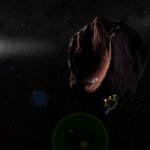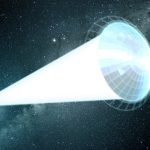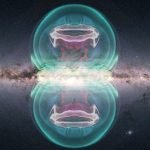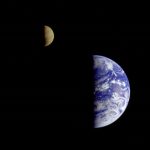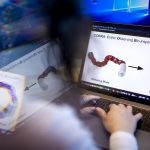Why would an alien civilization send out Von Neumann Probes?
In 1948-49, mathematician, physicist, computer scientist, and engineer John von Neumann introduced the world to his idea of “Universal Assemblers,” a species of self-replicating...
Astronomers could detect gravitational waves by tracking the moon’s orbit around the earth
Gravitational waves are notoriously difficult to detect.
Although modern optical astronomy has been around for centuries, gravitational wave astronomy has only been around since 2015.
Even...
How to sail into interstellar space without melting
In new studies, astronomers from the University of Pennsylvania and the University of California, Los Angeles concluded that if spacecraft are to withstand interstellar...
Supermassive black hole creates massive bubbles at center of Milky Way
Since 2020, when the X-ray telescope eRosita took images of the bubbles, astronomers have debated their origin.
The new study also shows the jet began...
Moon’s orbit could be a natural gravitational wave detector
Gravitational waves, predicted by Albert Einstein at the start of the 20th century and detected for the first time in 2015, are the new...
7 best places to search for life in the solar system
If humanity is ever going to find life on another planet in the solar system, it’s probably best to know where to look.
Plenty of...
Astronomers flag three exoplanets that are actually stars
The first worlds beyond our solar system were discovered three decades ago. Since then, close to 5,000 exoplanets have been confirmed in our galaxy.
Astronomers...
Comet 67P has abundant oxygen? No, it’s just an illusion
When the European Space Agency’s Rosetta spacecraft discovered abundant molecular oxygen bursting from comet 67P/Churyumov-Gerasimenko (67P) in 2015, it puzzled scientists.
They had never seen...
This snake-like robot will search for water on the moon
The ouroboros—the ancient symbol of a snake swallowing its own tail—generally represents infinity and the natural, endless cycles of the universe.
But for members of...
The Sun is slowly tearing this comet apart
Using ground-based and space-based observations, a team of researchers has been monitoring a difficult-to-see comet carefully.
It’s called Comet 323P/SOHO, and it was discovered over...

